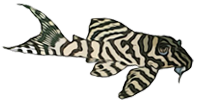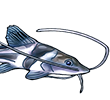Interesting hybridization (not fish)
-
NCE12940
- Posts: 211
- Joined: 22 May 2014, 04:31
- I've donated: $20.00!
- My cats species list: 7 (i:7, k:0)
- My aquaria list: 6 (i:5)
- Location 1: Midland
- Location 2: Texas
-
Marine590622
- Posts: 193
- Joined: 04 Apr 2014, 05:50
- My cats species list: 25 (i:0, k:0)
- My BLogs: 5 (i:0, p:34)
- Spotted: 1
- Location 1: Madison Wi, USA
- Location 2: Madison WI, USA
- Interests: Fishkeeping
- Contact:
Re: Interesting hybridization (not fish)
My first thought on reading that was to check the publication date for 1April. No such luck.
-
NCE12940
- Posts: 211
- Joined: 22 May 2014, 04:31
- I've donated: $20.00!
- My cats species list: 7 (i:7, k:0)
- My aquaria list: 6 (i:5)
- Location 1: Midland
- Location 2: Texas
Re: Interesting hybridization (not fish)
Nope, appears to be *real* - what mother nature gets up to when we're not looking...
- jp11biod
- Posts: 288
- Joined: 29 Aug 2010, 15:00
- I've donated: $372.00!
- My cats species list: 36 (i:0, k:0)
- Spotted: 2
- Location 2: NW Indiana
Re: Interesting hybridization (not fish)
Dogs are technically incredibly hybridized wolves, the same species. Its not a surprise that they cross. Coyotes are different. I dont think it is a good development that these crosses are thriving with a serious predator moving into urban areas. They will kill a lot of pets. Who knows, maybe people. It should be interesting to watch.
-
NCE12940
- Posts: 211
- Joined: 22 May 2014, 04:31
- I've donated: $20.00!
- My cats species list: 7 (i:7, k:0)
- My aquaria list: 6 (i:5)
- Location 1: Midland
- Location 2: Texas
Re: Interesting hybridization (not fish)
More info on divergence of domesticated dogs and wolves -
http://www.news.cornell.edu/stories/201 ... rigin-dogs
And from The Scientist - http://www.the-scientist.com/?articles. ... stic-Dogs/
*To deal with these problems, a team led by Olaf Thalmann from the University of Turku in Finland analyzed mitochondrial DNA from 18 fossil canids. They compared these ancient sequences to those from 49 modern wolves and 77 modern dogs, and built a family tree that charts their relationships.
The tree conclusively pinpointed Europe as the major nexus of dog domestication. It identified four clades of modern dogs, which are all most closely related to ancient European canids rather than wolves from China or the Middle East. “We didn’t expect the ancestry to be so clearly defined,” Thalmann told The Scientist.
“This suggests that the population of wolves in Europe that gave rise to modern dogs may have gone extinct, which is plausible given how humans have wiped out wolves over the centuries,” he added.
According to this new tree, the largest clade of domestic dogs last shared a common ancestor 18,800 years ago, and collectively, they last shared a common ancestor with a wolf around 32,100 years ago. They must have been domesticated at some point during this window.*
http://www.news.cornell.edu/stories/201 ... rigin-dogs
And from The Scientist - http://www.the-scientist.com/?articles. ... stic-Dogs/
*To deal with these problems, a team led by Olaf Thalmann from the University of Turku in Finland analyzed mitochondrial DNA from 18 fossil canids. They compared these ancient sequences to those from 49 modern wolves and 77 modern dogs, and built a family tree that charts their relationships.
The tree conclusively pinpointed Europe as the major nexus of dog domestication. It identified four clades of modern dogs, which are all most closely related to ancient European canids rather than wolves from China or the Middle East. “We didn’t expect the ancestry to be so clearly defined,” Thalmann told The Scientist.
“This suggests that the population of wolves in Europe that gave rise to modern dogs may have gone extinct, which is plausible given how humans have wiped out wolves over the centuries,” he added.
According to this new tree, the largest clade of domestic dogs last shared a common ancestor 18,800 years ago, and collectively, they last shared a common ancestor with a wolf around 32,100 years ago. They must have been domesticated at some point during this window.*
- jp11biod
- Posts: 288
- Joined: 29 Aug 2010, 15:00
- I've donated: $372.00!
- My cats species list: 36 (i:0, k:0)
- Spotted: 2
- Location 2: NW Indiana
Re: Interesting hybridization (not fish)
wow.... I will give this a read. I would not have thought the split was that far back.
-
NCE12940
- Posts: 211
- Joined: 22 May 2014, 04:31
- I've donated: $20.00!
- My cats species list: 7 (i:7, k:0)
- My aquaria list: 6 (i:5)
- Location 1: Midland
- Location 2: Texas
Re: Interesting hybridization (not fish)
It was awhile ago wasn't it! Current info - canines originated in central Asia & were first domesticated in Europe.




